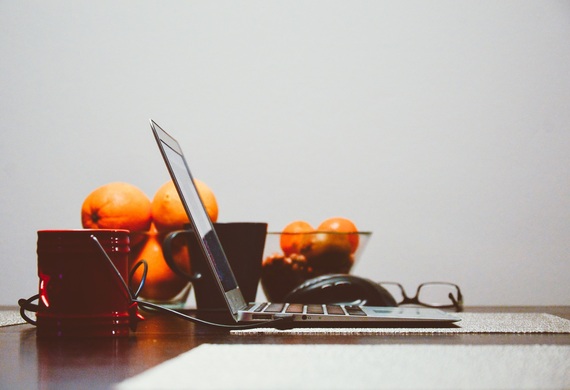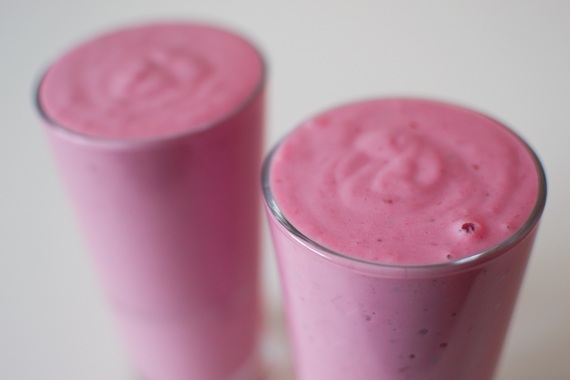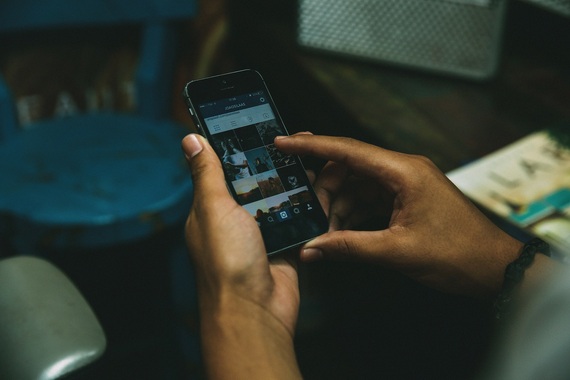Did you know that a full one-third of American adults obtain health information through social media? In a generation that is more likely to go online to check on their symptoms than ask a doctor, what role does social media play in this process?
Spoiler: It plays a major part. There have been countless research papers on how illnesses can be infectious but in the digital age, we are asked to examine a different kind of infection. Healthy and unhealthy behavior is extremely contagious.
Our social networks have dramatic impact on our individual health status. With the rise of #fitspo (shortcut for fitsporation, go figure) and numerous food bloggers, it is time to reflect on how Facebook, Instagram, Pinterest, Twitter and some new social networks which are tailored for the health-conscious influence our consumer and personal drive.
Let's dive into some meaningful stats and figures to clearly illustrate how social media keep making an impact on our health choices.
- More than 40 percent of consumers say that information found via social media affects the way they deal with their health.Source: MediaBistro
We can all admit we have visited a social network such as Facebook, Reddit or a good-old discussion forum to read what others are saying about a health matter. To quote Martha Carabott, a member of the EPF Youth Group who has been diagnosed with Coeliac Disease:
"Today's reality is that the use of social media services such as Twitter, Facebook and Instagram has become an integral part of my daily life. With the advantage of accessibility, many young people tend to choose online research to learn more about their conditions, rather than going through hundreds of pages of different books. Others prefer to read someone else's experiences from Facebook, Instagram or Twitter.
Social networks allow us to easily upload content and become a creator, manager and distributor. We use such channels to voice our opinion and concerns in a local, national or international context. This makes youth empowerment more credible in the modern world we are living in.
I find social media very useful, particularly as a platform of interaction where I can connect with other people suffering from the same disease. Such media offer a basic level of knowledge that is more youth-friendly than the medical words usually used by medical professionals.
Source: European Patient Forum
Source: The Spark Report
It's so easy to keep track of your calories, macros, exercise sets, heart rate and walking pace these days. From Fitbit to MyFitnessPal and Pact, more and more fitness apps emerge in the mobile marketplaces, providing different kinds of professional tools for aspiring healthy users. People keep busy and frequent on these platforms since they use them to keep track of their daily progression. You can either stay quiet on them and follow your everyday ritual or you can engage on a social level to inspire and be inspired by like-minded people.
A recent PCMag article quotes "Mobile apps are ideal assistants for health, fitness, and weight-loss resolutions because they are always with you and they're quite personal. Fitness isn't something we can take care of in just one day. It requires daily habits and lifestyle changes, and a few little nudges in the right direction from your mobile phone might make all the difference."
Source: HealthCare Financial News
Health trends come and go in social media at a rapid speed but if I had to choose the most predominant ones, my picks would be "The Paleo Diet" and "Juicing". Googling the first returns a staggering amount of over 5 million results, mostly from picture-packed blogs with highly dedicated followings. While the purpose of this article isn't to discuss the pros and cons of paleo, no one can deny the diet's popularity and how online users' choices were affected by it. One thing is certain. Thanks to social media, things that once were the domain of raw foodies and uber-health geeks has expanded into populist, and very commercial, trends.
Leveraging existing social networks within online communities creates an environment of peer support and a culture of health. This approach taps into the natural social fabric of what a digital network is supposed to do -- connect people -- fueled by peer-to-peer support that feels more personal than a health expert's website. Online support groups unlock the power of personal relationships and can share the same health-related goals to drive greater adoption of health-improving activities. The results create a new cultural context for positive health behaviors ranging from becoming more active to eating healthier, to seeking preventative care and better management of mental or physical conditions.
As a AOL study reports, brands turn to digital advertising to connect with their audience online. This shift comes with no surprise, as it indicates how adamant our dependence from the social streams has become. The world turns where serious conversations take place and in 2016 the place to be is online. At the end of the day, we like to know what our social/online environment is up to. Are your friends on Instagram posting pictures of their cool new biceps or are they bragging about their "Netflix and Chill" subscription? As engagement and social interaction in social networks continues to re-define our personal experiences, the time is right to monetize their power for a healthier lifestyle.
Sofia Katsali is a Social Media & Online Community Manager, Co-Founder of the non-profit organization Echelon Donates & has a BSc in Computer Science. She has been interviewed by MTV Act for her online charity work and has a great passion for all things digital, entertainment and design. You can find her in Linkedin and Twitter where she occasionally shares her personal experiences.



